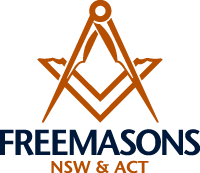
The Antients and the Moderns

The name Thomas Dunckerley would not register with many Freemasons as a person of importance but his role in the Craft had a major bearing on what we enjoy today.
His action as a man and a mason is not mentioned much, if at all, in our assemblies yet, single handed, he altered the masonic stage in a way that few could ever aspire to. Who was this person? What did he do?
As a mason and a military man, he brought much credit to the cause he was enlisted to fight in and the degree of what transpired as a result of the actions he was charged to play as a major part in the ongoing engagement.
Dunckerley was the illegitimate son of the then Prince of Wales, later to become King George II. He joined the Royal Navy as a boy aged 10 and served with distinction for some 26 years. He joined the Craft early in life and this became a passion for him in ways which only our masonic history books can reveal (read N Cryers, The Arch and the Rainbow, 1996 ed).
His main purpose, as a mason, was to strive hard to have the Moderns Grand Lodge accept some of the ceremonies and ideas then only to be discovered in the Antients Grand Lodge, acceptance which meant, in reality, they were entertaining and performing many of the degrees then totally unacceptable to the Moderns. In short, amongst these ceremonies was the Mark Degree, the Holy Royal Arch, the Ark Mariner and also some Knight Templar issues.
His engaging personality and forceful undertaking to achieve his ambition eventually did produce the aim of his endea - vour and it is largely to his credit that the 1813 Union of the two Grand Lodges in time permitted the introduction and accep tance of the system we today take for granted.
During his service on board HMS Vanguard, as a representative of the Moderns Grand Lodge, he had in his possession a Charter which in time permitted him to install the Grand Master of Canada after the fall of Quebec to the English. Dunckerley was a gunner aboard his ship and was recognised as a superb artisan of his weapon. He undertook two commissions on this vessel engaging the French.
On his discharge, he studied law and qualified but there is no record of him ever practising. There were numerous military masonic warrants amongst the regiments in the field and these were known to have been furnished by the Scottish, Irish and English Grand Lodges.
My thoughts turned to Dunckerley while I was marching along George Street, Sydney on Anzac Day when I was struck by the huge number of young and old faces which stretched from the beginning of the march in King Street to the dismissal point in Hyde Park.
It gave me time to reflect on many of the issues which brought this historical occasion to bear and which brought to my memory the name of Thomas Dunckerley.
Article extracted from Freemason magazine, September 2014, page 6.


